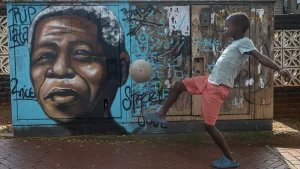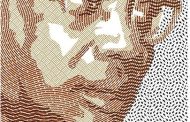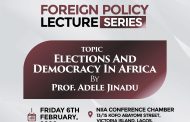A big puzzle indeed. Only last week, the London based The Economist wrote on Why South Africans are fed up after 30 years of democracy. The Economist may have its own baggage but many would share the sentiment about an ANC that has not performed up to expectation. Many more would put the blame on Jacob Zuma, the ANC spy chief who edged out his boss, Thabo Mbeki, who, in spite of his capitulation to neoliberalism, remained a more reflective mandarin. This piece, reproduced from Johannesburg based Daily Maverick provides a credible lead on the Zuma puzzle, beginning with the preface: The decision by the ANC to not proceed with former president Jacob Zuma’s disciplinary hearing underscores how the governing party has found it impossible to manage the situation. This goes all the way back to the party electing Zuma as its president despite the conviction of Schabir Shaik for paying him a bribe.
On Sunday, ANC Secretary-General Fikile Mbalula confirmed that he had instructed the party’s National Disciplinary Committee to postpone its disciplinary hearing of former president Jacob Zuma until after the elections. He said this was because Zuma’s uMkhonto Wesizwe (MK) party had said publicly its members would protest outside the ANC’s headquarters in Johannesburg, Luthuli House, in support of Zuma.
However, later on Sunday, MK spokesperson Nhlamulo Ndhlela told the SABC that MK would still go ahead with the protest. This means that members of one party were planning to protest outside the headquarters of another party — of which their leader is still a member. And they were going to protest against an event which was not even happening.
However, sense has now prevailed, and MK has confirmed that it has canceled its protest “at the request of President Zuma” and “due to the ANC’s threats of violence which could lead to a possible repeat of the Shell House Massacre or even the Marikana Massacre”.
Mbalula’s confirmation that the disciplinary proceedings had been postponed reveals a complex problem for the ANC: any proceedings against Zuma can tie it up in endless knots.
It is not clear that Mbalula has the power to order the National Disciplinary Committee to do anything. The very reason for its existence is that it is independent (except for the ANC’s National Executive Committee, which can overrule its final decision). To obey orders given by the secretary-general negates the reason for its existence. There are other problems.
Why the long wait?
The ANC’s charge sheet against Zuma, lodged only last week, stipulates: “On 16th December 2023, you addressed the Umkhonto we Sizwe Party (MKP) in Soweto and you called on all South Africans to join you in dislodging the ANC as the ruling party.”
While this cannot be disputed, the ANC must explain why it waited until May to finally act against Zuma — in the middle of an election campaign.
If he said this on 16 December, why was he not charged the next day? This is the kind of gap through which Dali Mpofu can drive an 18-wheel truck.
If the ANC had acted immediately, it would have had a stronger case. It is paying the price for yet another in the string of inexplicable failures to act against Zuma that has beset it for years.

Source: The Economist
However, the ANC has an easier option than hauling Zuma before the National Disciplinary Committee. At some point, his membership will have to be reviewed as part of the annual cycle (the ANC website says the current membership fee is R20 to be paid “annually”). The party can simply refuse to accept his money when the time comes, on the basis that he belongs to another party.
It should not be forgotten that had the hearing gone ahead, it could have sparked clashes outside Luthuli House.
In 2011, when disciplinary proceedings were started against ANC Youth League leader Julius Malema, several thousand people gathered outside Luthuli House, ostensibly to defend him. The result was a day of violence in the Johannesburg city centre, with Malema’s supporters throwing stones at the police while he watched from atop Luthuli House, surrounded by his lieutenants.
The area outside Luthuli House resembled a war zone. But, inside the ANC headquarters, then ANC secretary-general Gwede Mantashe welcomed journalists with offers of bottles of water. It was a fascinating moment when the interests of the media and Mantashe were aligned.
In 2011, Malema was still maturing as a political leader and his support was relatively unproven.
Zuma is very different. The violence that claimed more than 300 lives in KwaZulu-Natal and Gauteng came just days after he was jailed in 2021. The very presence of MK in this election has led to fears that there could be more incidents of violence in KZN before voting day. Zuma has never disavowed this infamous day of destruction that was committed in his name.
Decisions and consequences
The ANC has to tread carefully. It should be remembered, though, that the ANC itself is to blame for its predicament. If its leaders had not taken the decisions to strongly support Zuma through each and every scandal while he was in office, MK would not have the power it has now.
If the ANC had acted against Zuma when he fired Nhlanhla Nene in 2015, or during the Nkandla scandal, or when it became clear the Guptas were looting South Africa, none of this would be happening now.
It was the political decision that the ANC made to treat every criticism of Zuma as an attack on the party that has made him so powerful.
It was the ANC that elected him as its leader despite the many warnings about his conduct. ANC delegates voted for Zuma at Polokwane in 2007, despite the conviction of Schabir Shaik for paying him a bribe in 2005, allowing Zuma to enable State Capture. The ANC’s current leadership must shoulder some of the blame.
President Cyril Ramaphosa has repeatedly claimed the ANC is going through a process of “renewal” — but he has appointed to his government people found to have been involved in State Capture. He has not explained why he chose to do this, instead claiming that “processes” have to play out.
Appointing someone implicated in wrongdoing is a political choice. Either Ramaphosa appointed David Mahlobo and Zizi Kodwa because he wanted to, or because the internal politics of the ANC forced him to. He also appointed ANC Chair Gwede Mantashe to his Cabinet, but Mantashe has instituted legal action to review the Zondo Commission’s findings against him and appeared before the ANC’s Integrity Commission, which cleared him of wrongdoing.
If Ramaphosa made the appointments because he wanted to, he is not committed to the renewal of the ANC. And if he did so because the ANC forced him to, the party is not committed to renewal.
It is likely that Zuma and MK will continue to use the charges against him as a campaigning tool and that the ANC will continue to suffer as a result. This has been years in the making and there is no simple solution to the “Zuma problem” for the ANC. DM




























